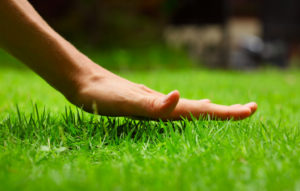There are many reasons why women have different routines regarding maintaining their health. One reason is that women’s bodies are different than men’s bodies. For example, women have a higher risk of developing osteoporosis, and they are also more susceptible to urinary tract infections and other reproductive health issues. In addition, many women have busy lives with families and jobs, so they may need to find different ways to fit in time for exercise and wellness activities.
Of course, the monthly visit is not something women should ignore. In addition to a yearly check-up, the American College of Obstetricians and Gynecologists (ACOG) recommends that women have a pelvic exam and Pap test at least every three years starting at age 21. Women over 30 should have a pelvic exam and Pap test every five years.
If you are a woman entering adulthood, there are a few things you need to know about health maintenance. Since it will be part of your lifestyle, you should consider brushing up on these aspects.
Tracking Your Period Cycles
One way to maintain your health is to be mindful of your periods. This process means tracking your period cycles and knowing when you are most likely to be fertile. It is a problem exclusive to women, making it necessary to learn more about them.
It is imperative for women with irregular cycles to take note of their periods. Irregularities can sometimes be a sign of a more serious health problem. If you experience irregular periods, make sure to see your doctor so that they can investigate the issue.
In addition, tracking your periods can help you become more familiar with your body. This strategy can make it easier to identify any changes or problems that may occur in the future. Being proactive about your health can reduce the chances of developing a severe illness.
Moreover, identifying when you are most fertile can help you plan or avoid pregnancy. Fertility tracking apps like Ovia and Clue help women track their cycles.
Ovulation
Ovulation is when the ovary releases an egg. It typically happens 12 to 16 days before a woman’s next period starts.
When you ovulate, your body goes through a lot of changes. Your basal body temperature (BBT) rises slightly, and you may notice an increase in cervical mucus. Some women also experience mild cramping on one side of their pelvis. These changes happen because of the increased production of progesterone during ovulation.
If you are trying to get pregnant, you will want to have sex around the time you ovulate. You are most likely to conceive if you have sex within 24 hours of ovulation. Unfortunately, you might not be getting pregnant despite knowing you are fertile. If you are still not pregnant after consecutive months, you might have to check your ovaries and uteruses with an MRI scan. However, lining up in the hospital could take precious time away from your daily schedule. Fortunately, you can sign up for private MRI scan schedules, allowing you to get an appointment that is convenient for you. The strategy can help you save time and get the answers you need.
If you want to avoid pregnancy, use contraception during your fertile days. The most effective method is the hormonal birth control pill. You can also use other methods like condoms, diaphragms, and intrauterine devices (IUDs).
Weight Loss Exercises and Diet

One of the most significant differences between weight loss exercises and diet for women and men is that women have to be careful about not losing too much weight. When a woman loses weight, she looks gaunt and frail. Women naturally have less muscle mass than men, among the many body composition differences between sexes. Women must focus on gradually losing weight and maintaining their muscle mass to preserve their health.
There are several critical considerations for a healthy diet for women:
- Women should make sure they are getting enough protein. Protein is essential for building muscle and preventing weight gain.
- Women should include plenty of fruits and vegetables in their diet. These foods are high in fiber and nutrients, which help keep the body healthy.
- Women should avoid processed foods and sugary drinks.
These foods are unhealthy and can cause weight gain.
Regarding exercise, there are also some essential differences between men and women. For one, women need to focus on strength training and cardio exercises. Strength training helps build muscle mass, which prevents weight gain. Additionally, women should avoid doing too much cardio exercise. Too much cardio can lead to weight loss, which is unhealthy for most women. Instead, women should focus on moderate-intensity cardio exercises that help them stay healthy and toned.
Final Thoughts
Maintaining a healthy lifestyle is essential for all women. Women should focus on eating a healthy diet, exercising regularly, and tracking their periods. Additionally, women should be aware of their fertility and take steps to either avoid or achieve pregnancy. By following these tips, women can improve their overall health and well-being.





